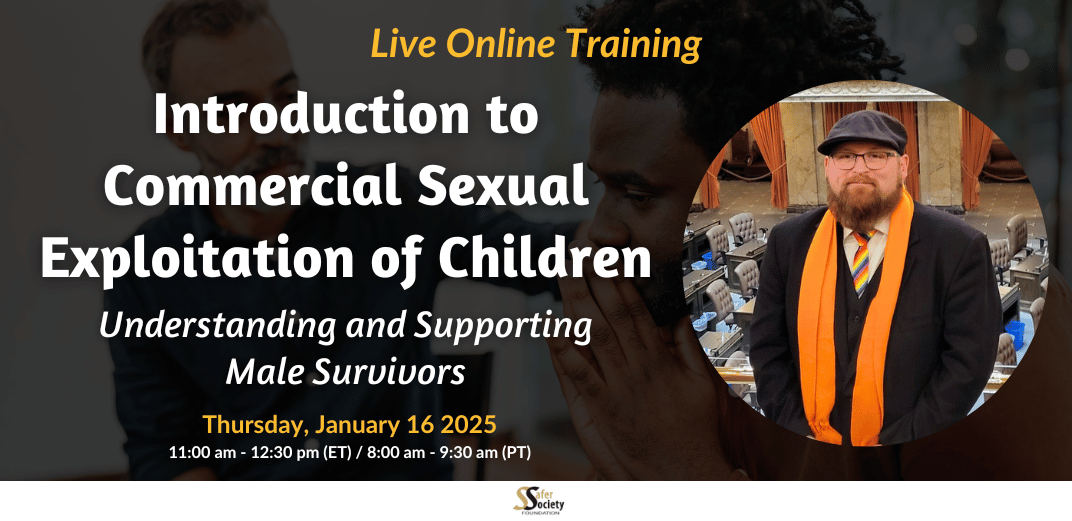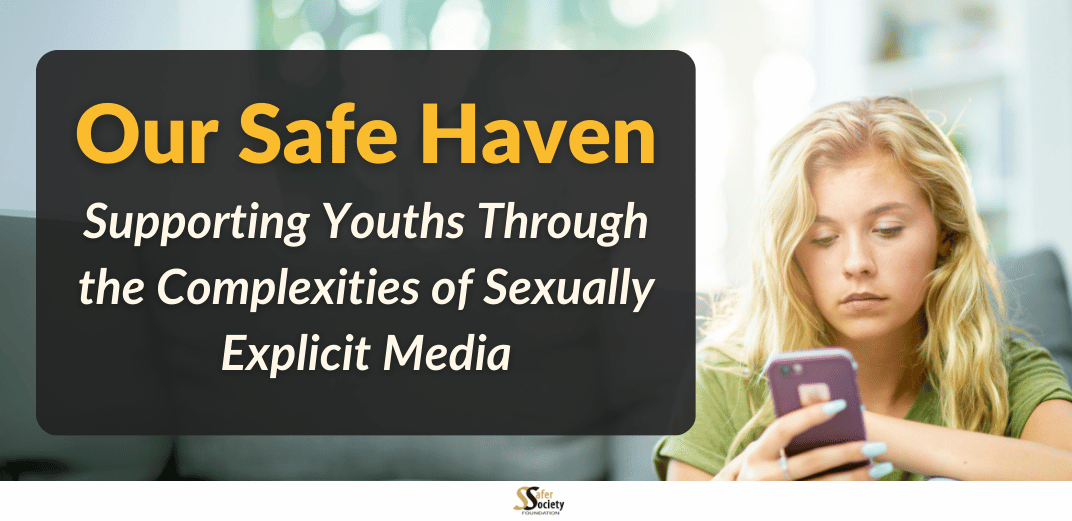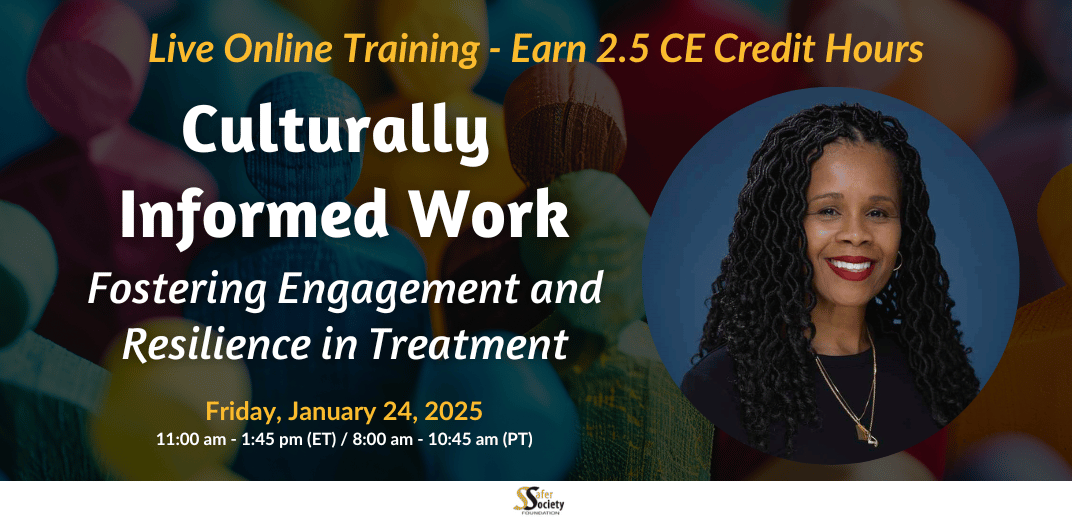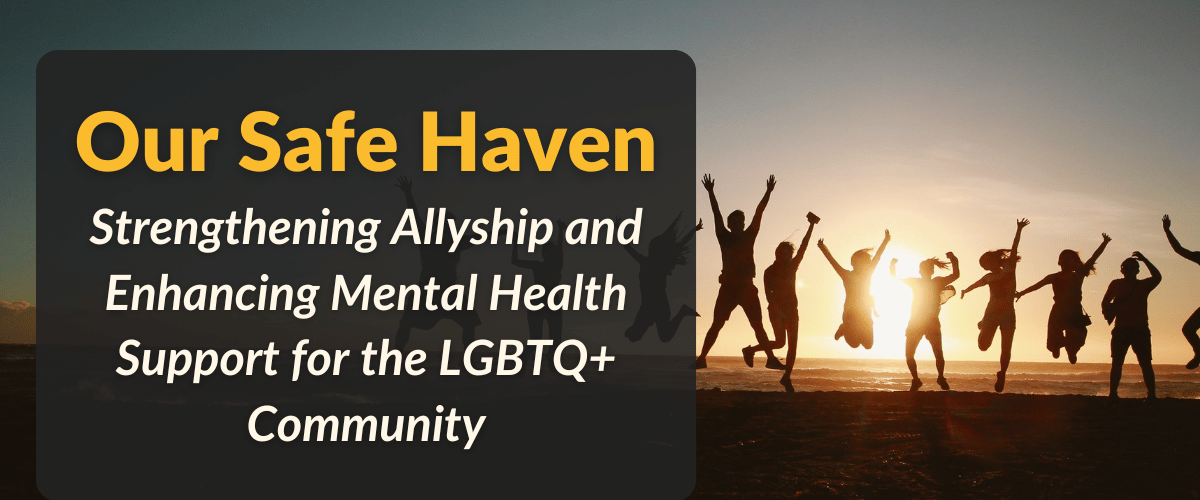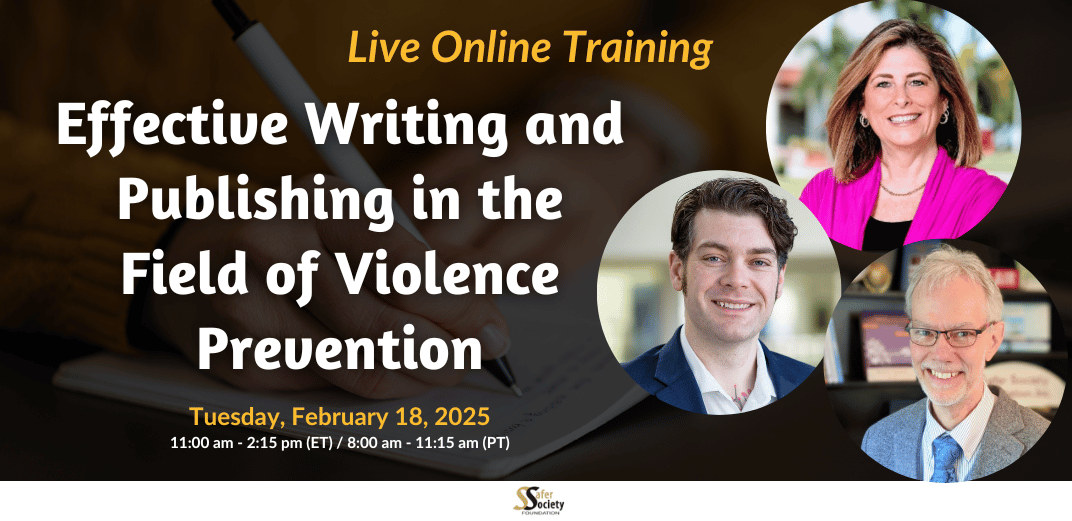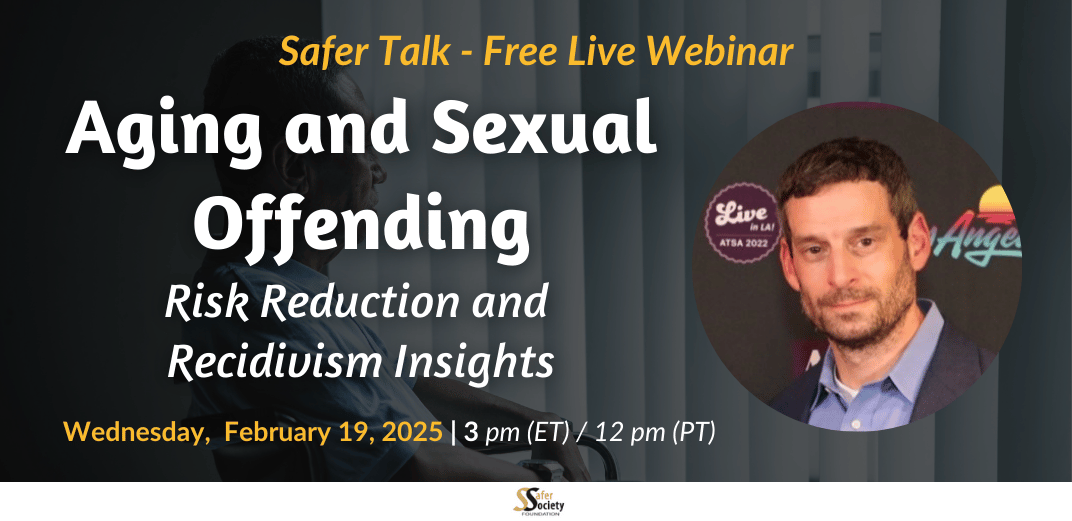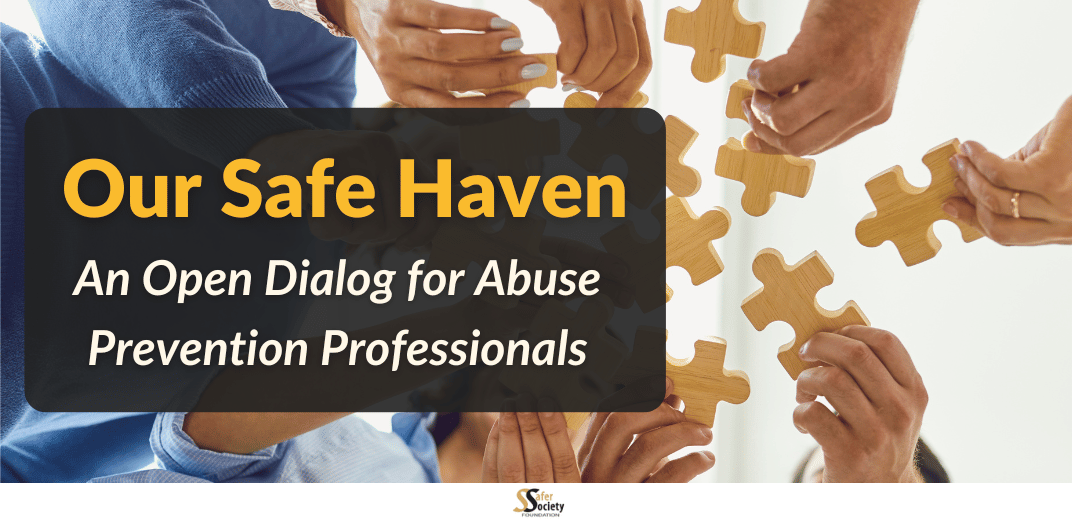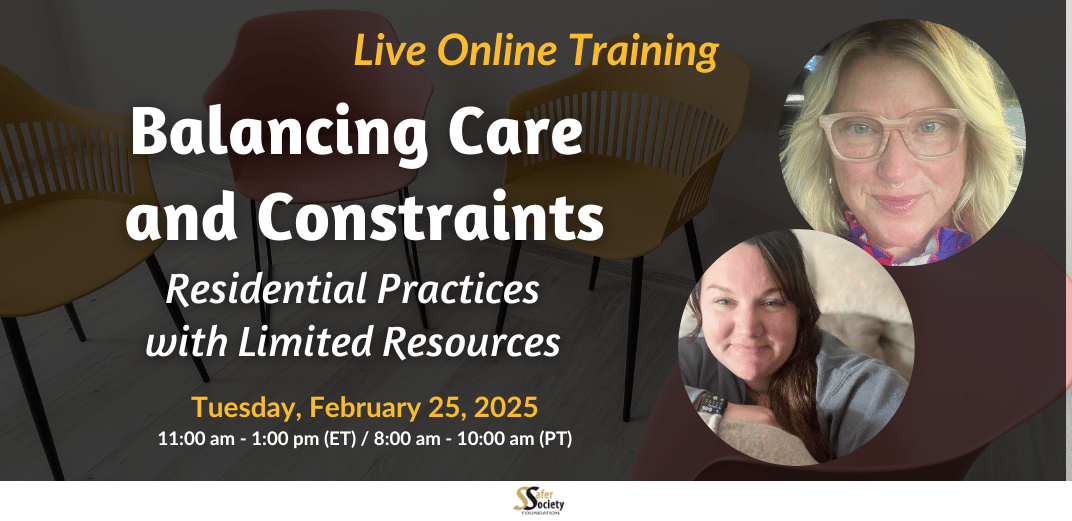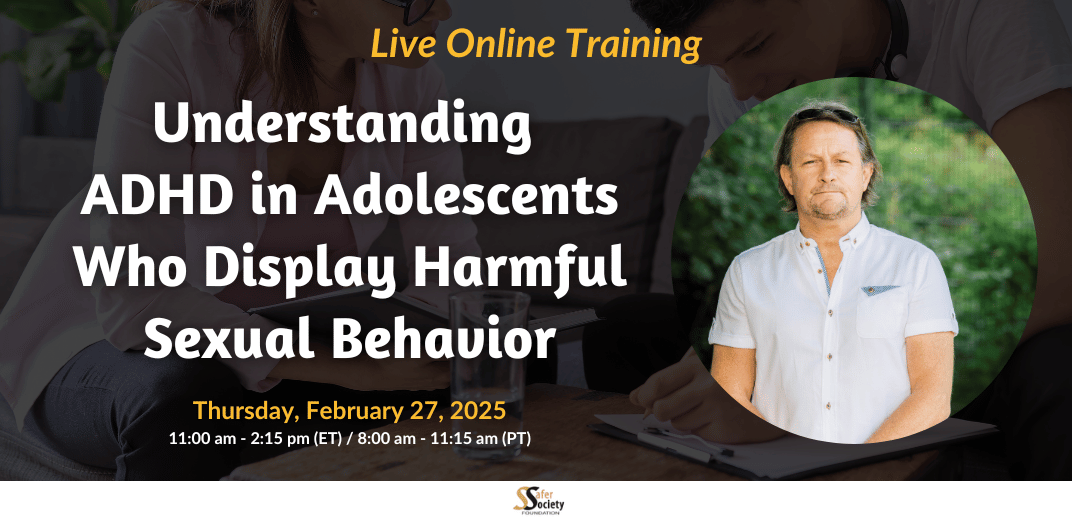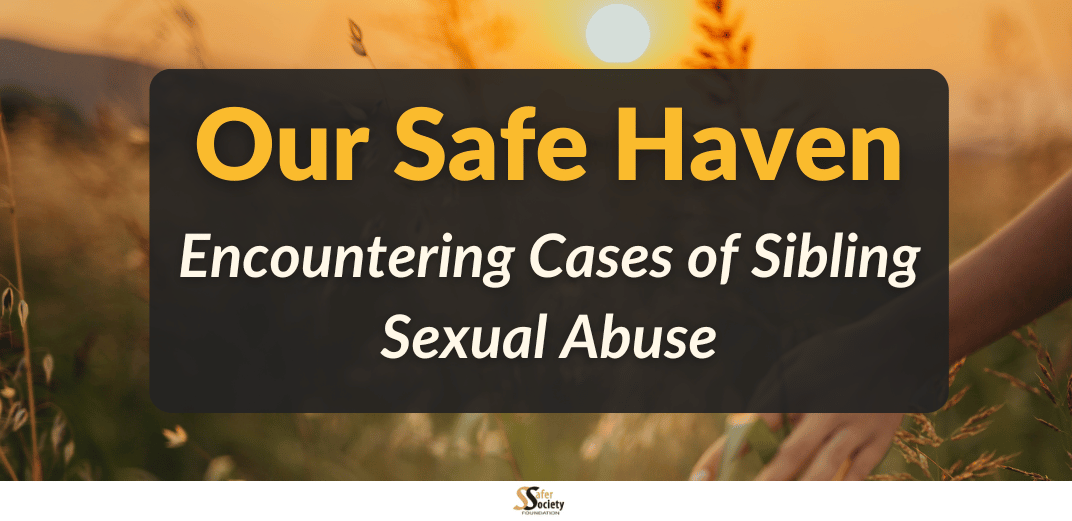
Our Safe Haven: Encountering Cases of Sibling Sexual Abuse
Working with family and other caregivers after sexual abuse has occurred entails navigating significant challenges. Professionals in this field, despite being invaluable, often go without due recognition. Sexual abuse by siblings, commonly seen in our field, underscores the need for comprehensive guidance for facilitating resolution and supporting families in their journey toward reconciliation and recovery—a resource that is often in short supply.
To the dedicated professionals supporting individuals who perpetrate abuse and encounter cases of sibling sexual abuse, we see you. We recognize the challenges you navigate with limited resources.
Join us for an upcoming Our Safe Haven session, where Linda Valenta joins David Prescott from Australia to discuss the challenges inherent in this line of work. Engage in open discussions, offer support, and be supported!

